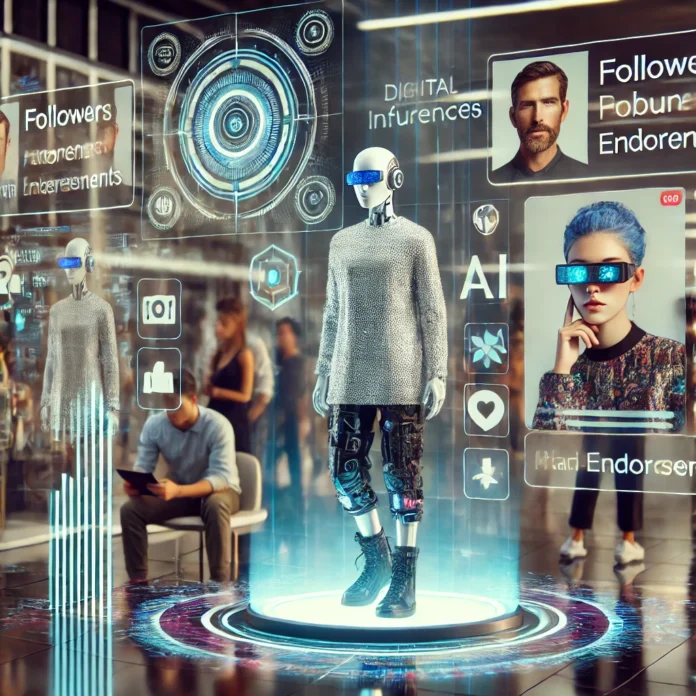The world of social media and entertainment is undergoing a radical transformation with the emergence of AI-generated influencers—virtual celebrities and digital personas created entirely by artificial intelligence. These hyper-realistic, computer-generated figures are gaining massive followings, securing brand deals, and even shaping pop culture. As AI technology advances, the rise of these digital influencers raises intriguing questions about authenticity, engagement, and the future of content creation.
What Are AI-Generated Influencers?
AI-generated influencers are virtual characters designed with deep learning, CGI, and sophisticated algorithms to mimic human-like behavior and interactions. Some, like Lil Miquela and Shudu Gram, have amassed millions of followers, collaborating with top fashion brands and even making music. Unlike traditional influencers, these AI-driven personas never age, require no physical upkeep, and can be tailored to fit specific trends or brand messages.
Why Are Brands Turning to AI Influencers?
Businesses are increasingly recognizing the benefits of AI-generated influencers:
- Cost-Effective & Always Available – Unlike human influencers, digital personas don’t require travel, makeup artists, or production teams, making them a more controlled and cost-efficient marketing option.
- Total Brand Alignment – Companies can customize AI influencers to align perfectly with their brand image, voice, and values, reducing risks associated with real-world influencers.
- Data-Driven Personalization – AI influencers can be programmed to interact with followers in highly personalized ways, creating more engaging and targeted content.
- Global Reach Without Limitations – Virtual influencers can exist in any cultural or linguistic context, broadening a brand’s audience with no geographical constraints.
Challenges and Ethical Concerns
Despite their growing popularity, AI-generated influencers raise ethical and social concerns:
- Authenticity vs. Deception – Since these influencers are artificial, some critics argue that they create unrealistic beauty standards and mislead audiences about real human experiences.
- Lack of Accountability – Unlike human influencers who can be held responsible for their actions, virtual influencers are controlled by companies, making accountability for misinformation or controversial content a challenge.
- Impact on Human Creators – As AI influencers dominate digital spaces, concerns grow about the potential loss of opportunities for human creators, models, and social media personalities.
The Future of AI Influencers
The evolution of AI influencers is far from over. As generative AI, deepfake technology, and augmented reality advance, these digital personas may become more interactive, autonomous, and emotionally intelligent. Some experts predict that AI influencers could evolve into full-fledged virtual beings capable of real-time interactions through the metaverse or holographic projections.
Whether seen as a marketing revolution or a controversial shift, AI-generated influencers are undeniably reshaping digital culture. The key question remains: Will audiences continue to embrace virtual personalities, or will the demand for human connection prevail?





